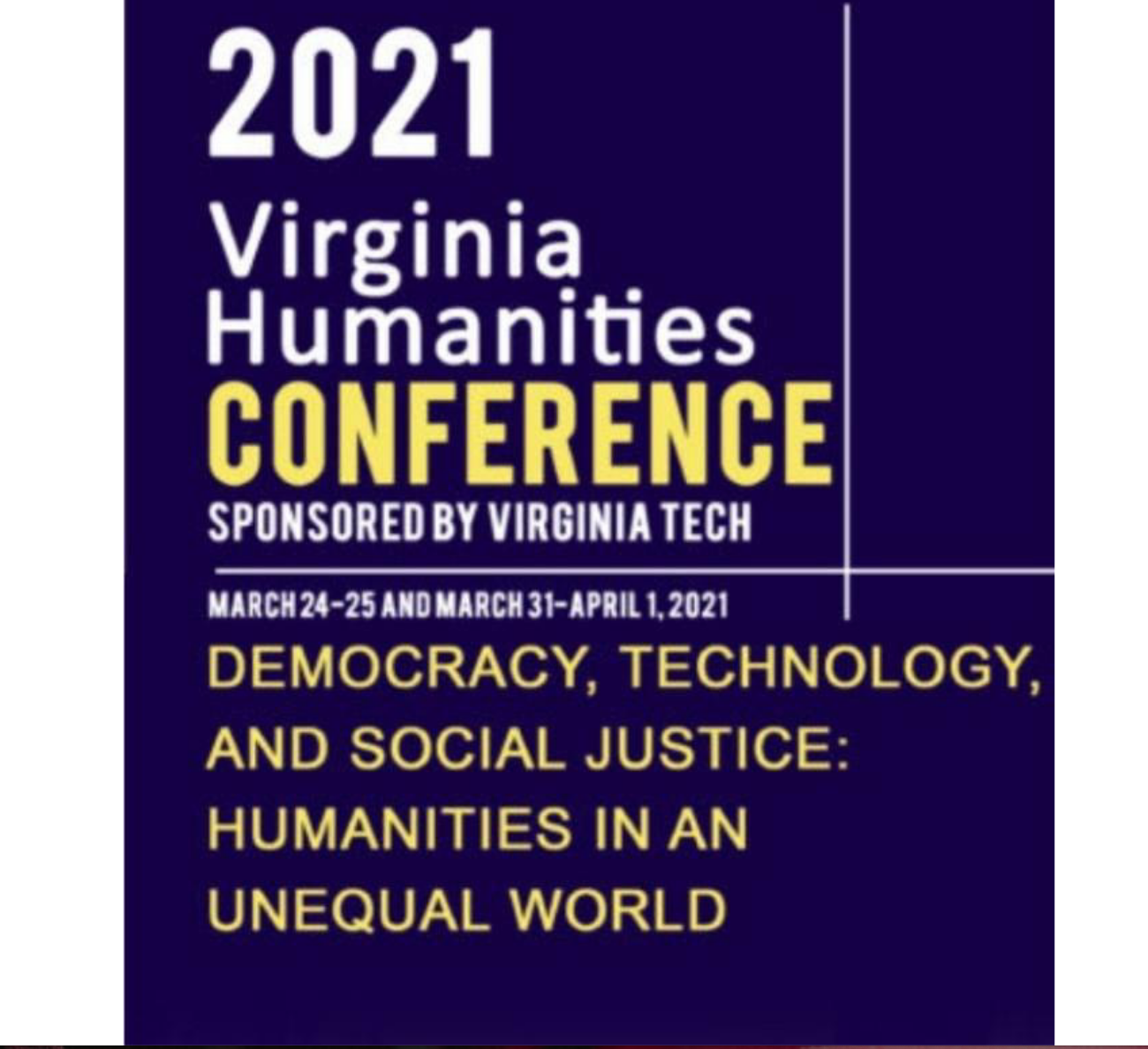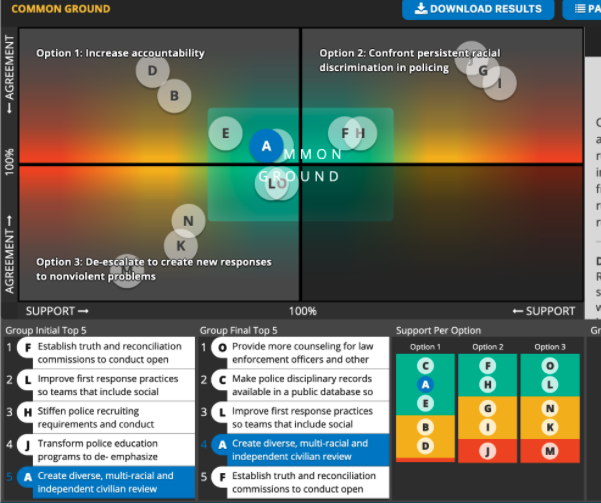Digital Humanities and Civic Tech Can Repair Democracy
Kara Dillard’s presentation to the 2021 Virginia Humanities Association annual conference was all about the benefits of civic technology for repairing American democracy.
The conference, sponsored and hosted by Virginia Tech, featured presentations on the theme of “Democracy, Technology, and Social Justice: Humanities in an Unequal World.” Dillard’s presentation made the case for why humanistic civic-deliberative technology like Common Ground for Action can help address the inequalities that prevent citizens from participating in their democracy every day.
The presentation was part of a panel that featured several presentations on how the humanities can support democracy and democratic engagement.

Civic participation in our democracy is costly: physical meetings are held at times that require time off work and childcare, are held in buildings away from public transportation or require substantial travel time. There are psychological and performative costs too: people need to speak the “right” language, look professional, and act civil even when facing injustice.
Often, those whose lives are most directly impacted by government are the ones who can least afford these costs to participating in democracy.

Civic technology offers the possibility of reducing the financial and performative costs to participating in political life.
Dillard’s presentation explored the development, innovative features, and uses of Common Ground for Action that can combat inequalities plaguing traditional methods of civic participation in political life. CGA was created using agile methodology, a practice common among software developers, with iterations developed in consultation with a wide range of deliberative democracy practitioners, facilitators, and serious game designers to create software specific and exclusive to small group public deliberation at a scalable level. She discussed how CGA’s purposefully designed anonymity and moderated small group chats alongside visual representations of the group’s discussion can create more equal participation in democratic decision-making.
